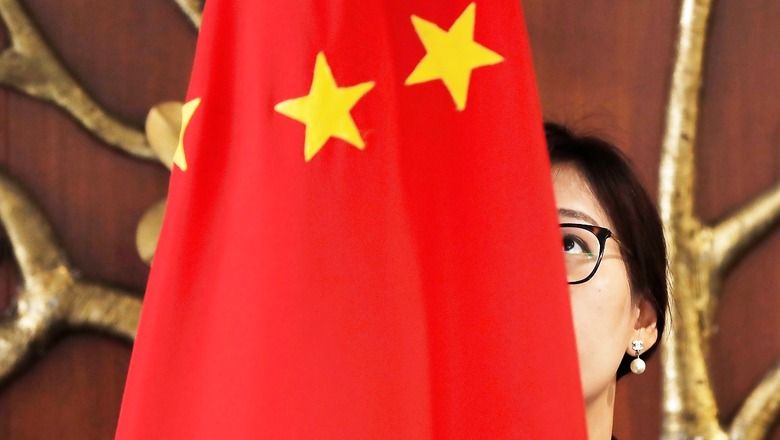
views
China is not a strategic threat to India and does not harbour expansionist agenda, Chinese ambassador to India Sun Weidong said on Thursday, claiming the country is dedicated to peaceful development.
Addressing a webinar on India-China relations more than a month after armed clashes along the border in Ladakh, Weidong said an “invisible virus”, a reference to the Covid-19 pandemic, is a bigger threat than China.
“To move China-India relations forward, I believe that we need to straighten our views on several key issues. First, China is committed to peaceful development, and is not a “strategic threat” to India,” he said in a tweet after the webinar.
“Invisible virus rather than China is the threat. It is short-sighted & harmful to deny long history of peaceful co-existence between China & India & portray our friendly neighbor for thousands of years as opponent & strategic threat due to temporary differences & difficulties,” he added.
Weidong, however, sought to deflect the international spotlight on human rights abuses in Hong Kong, Xinjiang and Taiwan, saying it was Beijing’s internal matter.
“Taiwan, Hong Kong, Xinjiang, & Xizang affairs are totally China's internal affairs & bear on China's sovereignty & security. While China doesn't interfere in other country's internal affairs, it allows no external interference & never trades its core interests either,” the envoy tweeted.
To move #China-#India relations forward, I believe that we need to straighten our views on several key issues. First, #China is committed to peaceful development, and is not a“strategic threat”to #India.— Sun Weidong (@China_Amb_India) July 30, 2020
Invisible virus rather than China is the threat. It is short-sighted & harmful to deny long history of peaceful co-existence between #China & #India & portray our friendly neighbor for thousands of years as opponent & strategic threat due to temporary differences & difficulties.— Sun Weidong (@China_Amb_India) July 30, 2020
Second, #China firmly upholds its sovereignty & meanwhile will never engage in aggression or expansion. #China has firmly safeguarded its national sovereignty, security & development interests. We have never been aggressive & pursued own development at expense of other countries.— Sun Weidong (@China_Amb_India) July 30, 2020
#Taiwan, #HongKong, #Xinjiang, & #Xizang affairs are totally #China's internal affairs & bear on #China's sovereignty & security. While #China doesn't interfere in other country's internal affairs, it allows no external interference & never trades its core interests either.— Sun Weidong (@China_Amb_India) July 30, 2020
Third, #China advocates win-win cooperation & opposes zero-sum game. our economies are highly complementary, interwoven & interdependent. Forced decoupling is against the trend & will only lead to a“lose-lose" outcome.— Sun Weidong (@China_Amb_India) July 30, 2020
Officials from both countries have been talking regularly to de-escalate the border standoff after the June 15 clash in the Galwan Valley in Ladakh region when 20 Indian soldiers were beaten to death with rocks and clubs.
The Ministry of External Affairs has said that a disengagement process as agreed by the two sides is yet to be completed, and that another round of commander-level talks would be held soon.
"We expect that the Chinese side will sincerely work with us for complete disengagement and de-escalation and full restoration of peace and tranquillity in the border areas at the earliest," spokesman Anurag Srivastava said.
Analysts say the worst fighting between the giant countries in decades is likely to push India closer to the United States, both strategically and in trade.
China and India fought a brief border war in 1962 and China is a close ally of India's long-time foe, Pakistan.




















Comments
0 comment